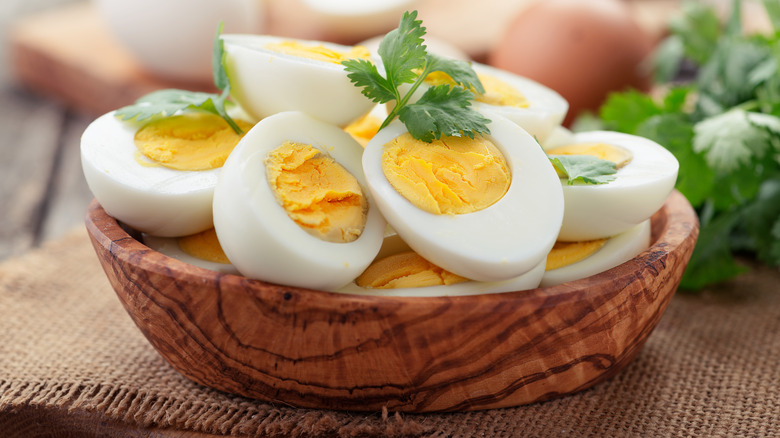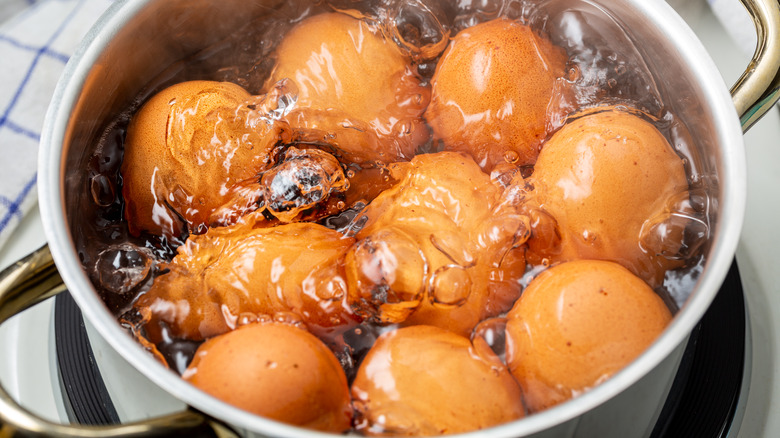Here's How Long A Batch Of Hard-Boiled Eggs Will Stay Good
If you don't consider yourself a morning person, carving out time to make breakfast before work or school can be challenging. To ensure you still get enough fuel to power through the day, prepping food in advance is a great idea. Eggs are a natural choice since they are high in protein and keep you satiated for longer, and in terms of versatility, portability, and ease of cooking, nothing beats a hard-boiled egg. With a bit of salt, hard-boiled eggs are delicious on their own. You can also slice them up and add them to salads for extra protein, or mash a few to make egg salad sandwiches.
However, hard-boiled eggs don't last forever. According to the United States Department of Agriculture (USDA), hard-boiled eggs (in which both the egg white and yolk are cooked until firm) can be stored in the refrigerator for seven days. When boiled and peeled, the egg's natural protective barrier is washed away, allowing bacteria to eventually enter the porous surface if the eggs are left sitting for too long.
Once cooked, hard-boiled eggs should be refrigerated within two hours to minimize the risk of food-borne illnesses caused by bacteria like salmonella. Hard-boiled eggs can either be stored with their shells still on, or peeled off. Not boiling too many eggs at once helps you get through a batch faster before it goes bad. Factor in how many people are eating the eggs and how often to determine how many to cook per batch.
Tips for making hard-boiled eggs
To successfully hard-boil eggs with minimal cracking to the shells, allow the eggs to reach room temperature before cooking (which takes about 15 minutes when left out on the countertop). Start the eggs in a pot of cold water and allow them to slowly heat up as the water comes to a boil. This will expedite the cooking time and minimize fractures in the shell, which can cause the whites to leak.
Once the water boils, lower the heat to simmer the eggs until cooked. Rapidly boiling water can cause the shells to crack. Depending on the eggs' size, it should take roughly 10 to 12 minutes to hard-boil a batch of eggs once the water is hot. Once they're done cooking, plunging hard-boiled eggs into an ice bath will stop the cooking process and help the shell come off in fewer pieces.
It sounds odd, but using less fresh eggs can also help you avoid frustration when trying to peel them. As an egg ages, the little air sack found between the egg white and shell expands, creating a "gap" that makes older eggs easier to peel than freshly-laid ones. Use the classic "water test" to determine the age of your eggs: When put into a glass of water, older eggs will float due to the extra air, while newer ones sink to the bottom.


